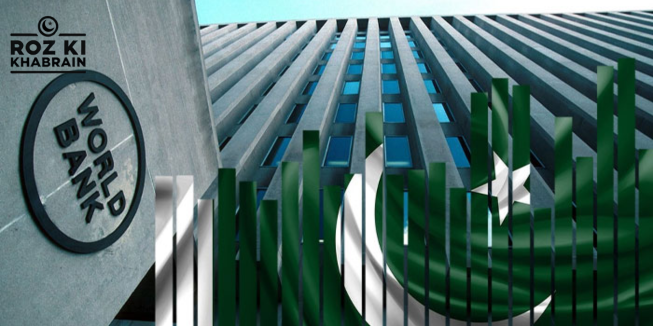ISLAMABAD:
The World Bank has recommended that Pakistan establish a permanent Debt and Risk Management Committee (DRMC) to address the growing fiscal risks and resolve the fragmentation in debt management. The committee would be accountable to Parliament, ensuring greater transparency and accountability in loan-related decisions.
The international lender urged the finance ministry to introduce secondary legislation to tackle the country’s “high debt burden,” with sources confirming that this issue has been raised multiple times in recent months.
The idea of the committee was discussed during the last steering committee meeting for the Revenue Mobilisation, Investment, and Trade Programme (REMIT), a UK-funded initiative chaired by the finance minister.
According to sources, the World Bank proposed the creation of the committee to ensure that borrowing practices are sustainable, transparent, and accountable. New loans should align with macroeconomic balances and fiscal and monetary policies. The lack of coordination between intra-ministry and inter-ministerial departments often leads to poor decision-making, with external debt recorded separately by the Economic Affairs Ministry and the central bank, preventing a holistic view of external debt repayments.
Loans from entities like the IMF, UAE, Kuwait, and the $4.5 billion Chinese trade finance facility are booked on the central bank’s balance sheet, contributing to external debt obligations. Pakistan’s debt management faces significant fragmentation, with even internal coordination between the finance ministry’s external finance wing and debt management office often lacking. The proposed committee would ensure that borrowing aligns with the government’s financing needs at optimal costs and manageable risks, taking into account domestic and global market conditions.
Last year, the finance ministry negotiated a foreign commercial loan that could have been Pakistan’s most expensive, a proposal that was eventually dropped after media coverage. During the latest REMIT meeting, the roles and mandates of various government departments in debt management were discussed, highlighting the need for improved coordination between the planning, finance, and economic affairs ministries.
The finance minister expressed a desire to expedite the formation of the permanent debt committee. However, neither the finance ministry nor the economic affairs ministry has commented on whether the government is considering the proposal.
The World Bank Board is expected to approve Pakistan’s 10-year Country Partnership Programme on Tuesday, with an estimated funding envelope of $20 billion for the 2025-2035 period.
The framework document stresses that the World Bank will continue to support the creation of a unified and efficient debt management function to reduce the costs and risks associated with the large debt portfolio.
The Country Partnership Framework also highlights Pakistan’s high debt burden, significant financial sector exposure to government debt, large external financing needs, and weak investor confidence. A proposal under discussion suggests that the new committee would identify fiscal risks from loan guarantees, regularly assess and mitigate these risks, and ensure transparency in their disclosure.
The DRMC would encourage sound, transparent debt management practices and ensure high-quality public debt data. The Ministry of Economic Affairs’ website indicates the last quarterly debt report was from March 2024, and the most recent annual debt report is two years old.
The proposed committee would provide strategic oversight for public debt management and coordinate activities with provincial authorities. It would also ensure the prudent management of debt-related fiscal risks. Pakistan’s total public debt exceeded Rs71 trillion last fiscal year, equaling 67% of the country’s GDP.
According to the draft proposal, the DRMC would assist the Debt Management Office (DMO) in creating and updating a debt strategy based on cost-risk analysis and support the development of an annual borrowing plan. The committee would also review the implementation of this plan.
The DRMC’s responsibilities would include endorsing debt sustainability analyses, developing strategies for loan guarantees, and assisting in the comprehensive recording of public debt. It would establish a central debt data repository, conduct regular audits, and ensure proper debt recording and reporting.
The DRMC would be co-chaired by the secretaries of the Finance Division and the Economic Affairs Division, with core members from the DMO, State Bank of Pakistan, Central Directorate of National Savings, and other relevant departments. The committee would meet quarterly and hold ad-hoc meetings in response to significant market shifts or economic stress.
The DRMC’s effectiveness would be reviewed every three to five years by the finance and economic affairs ministers. However, sources say the proposal is still under internal discussions and has not yet been finalized.




